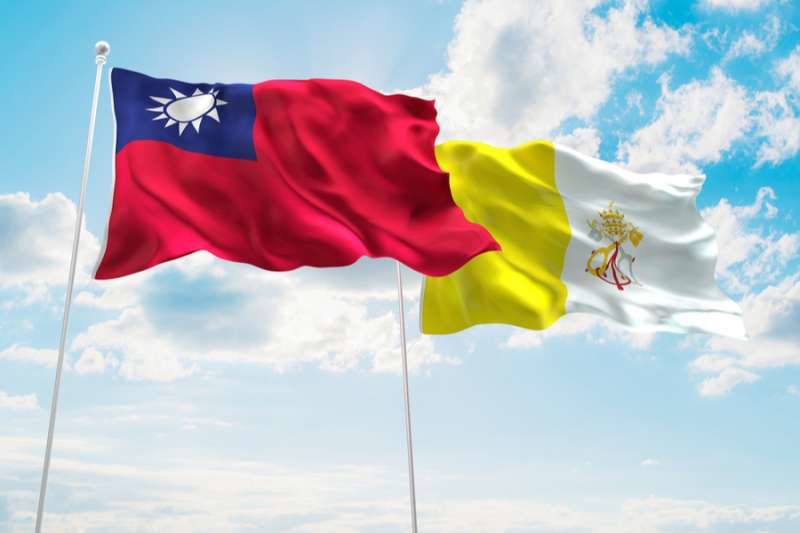The bishops of the Republic of China, also known as Taiwan, arrived in Rome earlier this week ahead of meetings with the pope and other Vatican officials — the first such visit in 10 years, and their first meeting with Francis since his election.
The delegation of seven bishops will meet with the pope next week for an ad limina visit — a customary meeting for diocesan bishops to give an update on the state of their dioceses — which typically takes place every five years.
The bishops of Taiwan last made an ad limina visit in December 2008 with Benedict XVI.
The bishops have brought two gifts for the pope: a painting by Giuseppe Castiglione, an Italian missionary to China who served as a painter in the court of three emperors in the late 17th and early 18th centuries, and a painting titled “Merciful Sun Shines on Taiwan,” by Tawanese artist Chia Shen-chen.
Before leaving for Rome, the bishops met with Taiwan’s president, Tsai Ing-wen, and with Vice President Chen Chien-jen — a devout Catholic who visited the Vatican for the canonization of St. Teresa of Calcutta in 2016 — who held a farewell dinner to express the government’s respect for the Church and the importance of Vatican-Taiwan relations.
The ad limina visit comes during a time of increased pressure from mainland China on Taiwan.
The Holy See has recognized the Republic of China since 1942, and does not have diplomatic relations with the People's Republic of China, which consolidated control of the mainland at the conclusion of a civil war in 1949.
The People's Republic insists that Taiwan is a rebel province, and place heavy pressure on countries not to recognize the island as a sovereign state. The Holy See is among the most prominent sovereign entities to do so.
Vatican journalist Francis Rocca reports in the Wall Street Journal that recent negotiations between the Holy See and mainland China may have stalled as the government has cracked down more severely on religious institutions, starting with the implementation of new regulations in February.
The Holy See has been in negotiations with the communist Chinese government in recent months that could eventually lead to Vatican recognition of seven illicitly ordained bishops aligned with Beijing, but which could end up sidelining the Church in Taiwan if an agreement leads to diplomatic ties being formed between the Holy See and Beijing.
Archbishop John Hung Shan-chuan of Taipei, speaking to Reuters in March, said the Church in Taiwan did not anticipate that the Holy See and mainland China would establish diplomatic relations, because to do so requires sharing “common values with each other.”
“The values the Vatican holds are different from those of the Chinese Communist Party. Building ties with the Vatican requires values including freedom and democracy,” Archbishop Hung said.
Taiwan has fewer than 300,000 Catholics — two percent of the population — and seven dioceses. There are seven active bishops, and six who are retired.
Bishop Bosco Lin Chi-nan of Tainan and Archbishop Hung are both close to turning 75, when they will be required to submit their retirement, potentially opening up two sees to new bishop appointments if Pope Francis accepts their resignations.

